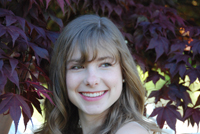Page 120 • (1,308 results in 0.089 seconds)
-
sciences; however, virtually all recommend some coursework in these disciplines in order to develop an understanding of human behavior and society. As of 2015, the revised MCAT exam will test concepts from psychology and sociology in the Psychological, Social and Biological Foundations of Behavior section of the exam. In addition, the Critical Analysis and Reasoning Skills section of the revised MCAT may include passages from cross-cultural studies (anthropology, communication and culture, etc.) and
-

volunteer mentor because he knows that high school “is a critical time in a person’s life, when you have got to make a lot of big decisions.” “When I struggled in high school, he helped me,” Nagi-Mosa said of his mentor. “When I was about to stop thinking about college, he pushed me.” Jackson said Palmer Scholars wants mentors who want to make an impact on the life of a young person by building a culture of trust, one-on-one, that will support a scholar throughout their college career. “One of the
-

for transit issues all over the country,” Austin says. “It was an incredible experience organizing in the south in places like Georgia and in Rust Belt cities like Pittsburgh and Cleveland. (Photo: John Froschauer/PLU) Austin rides the light rail in Tacoma. +Enlarge Photo “My eyes were really opened to the similarities between advocacy organizing across the country, but also the dynamics and culture of each community greatly impacted the work. Like they say, all politics is local.” However, after
-

Examiner cited Powers’ passions for communication, outreach and creative programming, along with his “all-in” engagement with local politics and government, arts and culture, athletics and education. Plus, he coaches youth basketball teams and builds community connections through steering-committee roles with political campaigns—you know; in his spare time. “At the core of what I do, both professionally and in service to my community, is communicating information about opportunities, services and
-
work in the two remarkable faculty-student research projects in the Department of Languages and Literatures, “Chai-na” and “Jean-Jacques Rousseau, Reader of Gabrielle Suchon?”, which have been generously funded by Kelmer-Roe fellowships and the Wang Center for Global Education. And what about you? Has the learning of a language somehow surprised and changed your life? Perhaps learning a language changed the way you understood your own past, culture, or ideas. Perhaps it provided the means to bring
-
Malick Folk Performing Company Indigenous Arts and Culture Roger Fernandes Native American Artist Kirk Robbins STEM Teaching Wang Symposium Kaveh Akbar Poet Alana R. Simmons “Hate Won’t Win” Alberto Ledesma Author Pamela Ronald University of California, Davis Hilde Restad Associate Professor of International Studies Minal Hajratwala Author Ēriks Ešenvalds Choir of the West Fr. Charles R. Gallagher, S.J. Boston College Michelle M. Jacob, Ph.D. Professor of Indigenous Studies Quinton Johnson, Ph.D
-
allowed me to produce a much better capstone than what I would have produced on my own. Why Mars? What Science and Culture See in Our Planetary Neighbor Allison Sheflo Humanity has long been interested in Mars, as the closest planet to Earth. Mars has been a focus of scientific interest, but also of cultural interest. Scientific studies, both on the planet itself and using Earth analogs, have recently been focused on the ways that what we learn about Mars can be applied back to Earth and on getting
-

seemed so happy! I loved the smiling faces and caring nature of everyone I interacted with. My PLU experience: While my academic and career goals haven’t really changed since coming to PLU, I have grown into someone quite different from the girl I was four years ago — a considerably more confident young woman. Much of this I attribute to IHON. The first course in the program made me critically evaluate my core beliefs — something I hadn’t anticipated. Through IHON, the culture of PLU, and studying
-
prohibit racial and gender preferences by state and local governments). The campus climate changed during my time at PLU because my peers and I chose to change it. Lou Vargas ’12: When speaking of PLU climate and culture, my memories bring me back to my first-year experience. It was certainly difficult for an immigrant of color like myself to acclimate with my peers who were mostly white. And not just any white — privileged white. The kind of white that didn’t recognize privilege. Their humor was
-
try to do it again?” he said. “All the conflicts in the world would stop if people would just focus on food and alcohol. You cannot be upset with somebody when you’re enjoying their culture and their drink.” Bunk ran with that approach after launching Nightside. He said many distillers are open to talking about their processes, and he’s been able to troubleshoot problems through outreach. “We’re in competition I guess,” he said, “but at the end of the day we all want more small, craft distilleries
Do you have any feedback for us? If so, feel free to use our Feedback Form.


